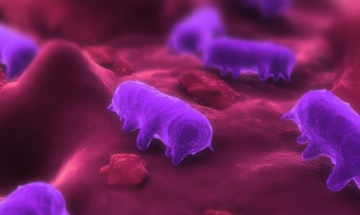
Climate change and Salmonella infections linked: study
Food in Canada
Food Safety Fruit & Vegetables Meat &Poultry climate change SalmonellosisA new study from the University of Maryland School of Public Health has found that extreme heat and precipitation events give rise to an increased risk of Salmonella infections

College Park, Md. – Climate change could bring on more than just extreme changes in weather. A new study says there could also be an increased risk of Salmonella infections.
Researchers from the University of Maryland School of Public Health say the extreme heat and precipitation events expected are associated with increased risk of Salmonella infections. It’s a connection  that the researchers made when extremely hot days and periods of extreme rainfall strike coastal communities in Maryland, says Dr. Amir Sapkota, associate professor at the Maryland Institute for Applied Environmental Health.
that the researchers made when extremely hot days and periods of extreme rainfall strike coastal communities in Maryland, says Dr. Amir Sapkota, associate professor at the Maryland Institute for Applied Environmental Health.
The researchers explain that Salmonella, a group of food- and waterborne bacteria, is commonly found in raw poultry, eggs, beef and unwashed produce. In the U.S., the bacteria causes 1.2 million cases of acute gastroenteritis each year. In Maryland, between 2202 and 2012, there were more than 9,500 cases of Salmonella infections.
According to the researchers, past studies also suggest a connection between weather (temperature and rainfall) and Salmonella infections.
The new study identified extreme heat and precipitation events during 2002 and 2012 and linked them with Salmonella infections data from the health department.
The extreme events were identified using ~30 years of weather data (from 1960 to 1989) as the baseline.
The team, says the university’s website, observed that a one-unit increase in extreme heat and precipitation was associated with 4.1 per cent and 5.6 per cent increases in the risk of Salmonellosis, respectively.
The observed risk was higher in coastal areas compared to non-coastal areas of Maryland.
The researchers say the study highlights the need to engage public health practitioners and policy makers to prepare for and respond to climate change-associated adverse health effects at every level.
Print this page